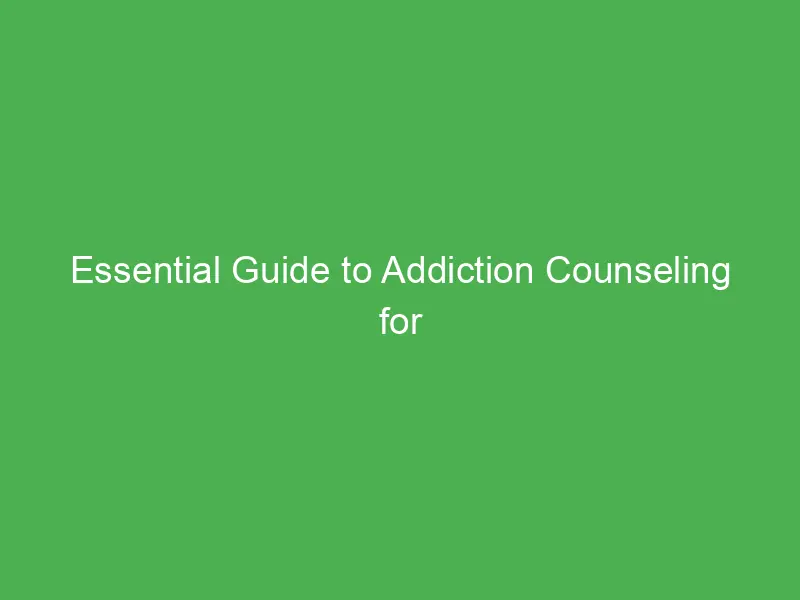As the population ages, the issue of alcohol dependency among seniors in the United Kingdom has become increasingly significant. Many older adults face unique challenges when it comes to alcohol consumption, often leading to health complications and a diminished quality of life. Understanding the importance of alcohol detox for this demographic is crucial for families and caregivers seeking to support their loved ones in reclaiming their health.
Alcohol detox isn’t just about stopping drinking; it involves a comprehensive approach tailored to the specific needs of seniors. With the right support and resources, older adults can navigate this journey safely and effectively. This article explores the essential aspects of alcohol detox for seniors, highlighting the benefits, available treatments, and the importance of seeking professional help.
• What is alcohol detox for seniors in United Kingdom?
Alcohol detox for seniors in the United Kingdom involves a medically supervised process aimed at removing alcohol from the body while managing withdrawal symptoms. This process is crucial for older adults, as they often face unique health challenges due to age, making detoxification more complex. Here are the essential steps involved in alcohol detox for seniors:
- Assessment: Medical professionals conduct comprehensive assessments to evaluate the senior’s physical and mental health. They review medical history, current medications, and the extent of alcohol consumption.
- Planning: Based on the assessment, a tailored detox plan is created. This plan considers the individual’s living situation, social support, and specific health issues, including any co-occurring conditions like diabetes or heart disease.
- Detoxification: Seniors undergo detox in a safe environment, often within a residential facility or specialised outpatient programme. Health professionals monitor the individual for any signs of withdrawal, which can include anxiety, tremors, or nausea.
- Medication Management: In some cases, medications may be prescribed to ease withdrawal symptoms. These medications can help reduce cravings and support the senior’s overall well-being during the detox process.
- Supportive Care: Emotional and psychological support is vital. Group therapy or one-on-one counselling sessions may be included to help seniors cope with the changes and provide a platform for sharing experiences.
- Aftercare Planning: After detox, a solid aftercare plan is essential. This may involve ongoing therapy, support groups, and continued medical care to prevent relapse and promote long-term sobriety.
Understanding these steps enables families and caregivers to provide the necessary support and facilitate a smoother detox experience for seniors struggling with alcohol dependency in the United Kingdom.
• Benefits of alcohol detox for seniors in United Kingdom
- Improved Physical Health
Alcohol detox significantly reduces health risks for seniors. It helps lower blood pressure, enhance liver function, and reduce the chances of developing chronic diseases such as diabetes and heart disease. This revitalisation can lead to a longer, healthier life.
- Enhanced Mental Clarity
Alcohol consumption can impair cognitive function. Detoxing allows seniors to regain mental clarity, improving memory and decision-making abilities. This cognitive recovery fosters greater independence and overall quality of life.
- Increased Emotional Well-being
Detoxing can help alleviate symptoms of anxiety and depression often linked to alcohol dependency. As seniors clear toxins from their systems, they may experience improved mood stability, leading to healthier emotional states.
- Better Sleep Patterns
Alcohol disrupts normal sleep cycles, leading to insomnia or poor-quality sleep. Detoxing can restore healthier sleep patterns, allowing seniors to feel more rested and revitalised each day.
- Stronger Social Connections
Withdrawal from alcohol often encourages seniors to seek support from families and peer groups, fostering stronger social connections. Engaging in sober activities helps combat isolation and loneliness.
- Enhanced Activity Levels
Detox can boost energy levels, enabling seniors to engage in regular physical activity. Increased mobility promotes better health, reduces the risk of falls, and enhances overall vitality.
- Professional Support and Guidance
A medically supervised detox provides tailored support for seniors, including therapy and counselling. Access to tailored treatment plans addresses individual needs, ensuring a safer and more effective recovery process.
- Long-term Sobriety
A successful detox sets the foundation for long-term sobriety. With proper aftercare planning, seniors can build the tools necessary to maintain their recovery and improve their overall life satisfaction.
• How to Find the Best alcohol detox for seniors in United Kingdom
Finding the right alcohol detox programme for seniors involves several steps to ensure safe and effective treatment. Here are key steps to consider:
- Research Treatment Options
Explore various detox facilities that specifically cater to seniors. Look for programmes that offer tailored services and consider factors such as location, facility size, and amenities.
- Check Accreditation and Licensing
Verify that the detox centre is accredited by recognised organisations, such as the Care Quality Commission (CQC) in the UK. Accreditation ensures the facility meets required standards of care.
- Evaluate Medical Support
Assess the level of medical support available. Ideal programmes should provide 24/7 medical supervision, especially for seniors who may have underlying health conditions.
- Review Staff Qualifications
Examine the qualifications of the staff members. It’s beneficial to have healthcare professionals experienced in geriatrics and addiction treatment, as they understand the unique needs of older adults.
- Consider Individualised Treatment Plans
Look for programmes that create personalised treatment plans. Individual assessments should dictate approaches to detox, taking into account medical history, substance use, and psychological health.
- Seek Aftercare Options
Discover if the facility offers robust aftercare services. Post-detox support, such as counselling and support groups, is crucial for long-term sobriety.
- Read Reviews and Testimonials
Investigate feedback from previous clients and families. Testimonials provide insight into the effectiveness of programmes and the quality of care received.
- Discuss Costs and Insurance Coverage
Review the costs involved, and inquire about payment options and insurance coverage. Many facilities may accept various insurance plans, which can help ease financial concerns.
- Visit Facilities
Arrange visits to potential detox centres. Observing the environment and interactions between staff and patients can provide peace of mind about the choice.
- Trust Your Instincts
Pay attention to gut feelings during the selection process. Choosing a treatment centre that feels welcoming and supportive can significantly influence the detox experience.
Following these steps can help families and caregivers find a suitable alcohol detox programme that effectively meets the needs of seniors in the UK.
• Best Practices for alcohol detox for seniors in United Kingdom
- Consult a Healthcare Professional
Consulting a healthcare professional is essential before starting detox. They can evaluate individual health conditions, assess the severity of alcohol dependency, and recommend an appropriate detox plan.
- Choose a Medically Supervised Detox Programme
Opting for a medically supervised detox programme ensures access to 24/7 support and monitoring. This environment significantly reduces health risks during the withdrawal phase, making recovery safer and more effective.
- Customize the Detox Plan
Customising the detox plan to suit personal health needs will enhance the recovery experience. This includes considering existing medical conditions, medications, and specific triggers that may affect the detox process.
- Gradual Reduction of Alcohol Intake
Gradually reducing alcohol intake prior to detox can lessen withdrawal symptoms. This approach, known as tapering, should be done under medical supervision to ensure safety and effectiveness.
- Incorporate Nutritional Support
Incorporating nutritional support during detox can help restore essential vitamins and minerals that may be depleted due to alcohol use. A balanced diet will aid in physical recovery and improve overall well-being.
- Engage in Physical Activity
Engaging in light physical activity, such as walking or yoga, can boost physical health and enhance mood during the detox process. Regular exercise promotes emotional stability and aids in maintaining a healthy lifestyle.
- Establish a Support Network
Establishing a strong support network is vital for recovery. Family members and friends can provide emotional support, while support groups offer shared experiences and encouragement during this challenging journey.
- Plan for Aftercare
Planning for aftercare is crucial as detox is just the beginning. Continued therapy, support groups, and ongoing medical check-ups help maintain sobriety and promote long-term health.
- Be Patient and Flexible
Being patient and flexible with the recovery process will help manage expectations. Each individual’s journey through detox can vary, and adapting to this process is important for successful outcomes.
By implementing these best practices, seniors in the United Kingdom can navigate the detox process more effectively, ensuring a safer and more supportive environment for recovery.
• Common Challenges with alcohol detox for seniors in United Kingdom
Alcohol detox for seniors poses unique challenges that can complicate the recovery process. Understanding these challenges is essential for creating effective treatment plans.
- Physical Health Complications
Seniors often face pre-existing health conditions, such as diabetes, heart disease, or respiratory issues, which can exacerbate withdrawal symptoms. It’s crucial to conduct a thorough medical assessment before starting detox to manage these potential risks.
- Withdrawal Symptoms
Seniors may experience more intense withdrawal symptoms due to age-related changes in metabolism and body chemistry. Symptoms can include anxiety, insomnia, tremors, and, in severe cases, delirium tremens. Medical supervision is vital to monitor and treat these symptoms effectively.
- Cognitive Impairment
Many older adults may have cognitive decline, making it harder to understand detox procedures or follow treatment plans. Customised approaches, considering cognitive abilities, can help enhance comprehension and adherence to the programme.
- Social Isolation
Substance dependency can lead to social withdrawal, leaving seniors feeling isolated. Re-establishing social connections through support groups can aid in overcoming feelings of loneliness and enhance recovery outcomes.
- Psychological Factors
Depression and anxiety are common among seniors, often intensified during detox. Incorporating mental health support, such as counselling or therapy, can be beneficial in addressing these issues during the detox process.
- Access to Resources
Limited access to transportation or healthcare facilities can hinder seniors from attending detox programmes. Local community services or outreach programmes can provide the needed support and facilitate access to treatment.
- Family Dynamics
Family dynamics can sometimes complicate the detox process. Open communication and involvement of family members in care planning can foster a supportive environment for the senior undergoing detox.
Understanding and addressing these challenges is crucial for the success of alcohol detox for seniors in the United Kingdom. Tailored strategies, constant medical supervision, and supportive networks can significantly enhance the recovery journey.
Alcohol Detox for UK Seniors: Essential Benefits & Challenges
- Unique Challenges for Seniors: Alcohol detox for seniors in the UK involves addressing age-related health complications, cognitive impairments, and emotional factors that can complicate recovery.
- Comprehensive Detox Process: A successful detox includes thorough assessments, customised plans, medical supervision, and supportive care to manage withdrawal symptoms effectively.
- Health Benefits: Alcohol detox can lead to improved physical health, enhanced mental clarity, better emotional well-being, and stronger social connections, resulting in a higher quality of life.
- Important Aftercare: Developing a solid aftercare plan that incorporates ongoing therapy and support groups is essential for maintaining long-term sobriety and preventing relapse.
- Choosing the Right Facility: Caregivers should seek accredited detox programmes tailored for seniors, ensuring access to qualified staff, adequate medical support, and individualised treatment plans.
- Supportive Environment: Establishing a robust support network, including family and peer groups, is crucial for fostering emotional stability and encouraging recovery during and after the detox journey.
• Conclusion
Alcohol detox for seniors in the United Kingdom is a vital step towards reclaiming health and improving quality of life. By addressing the unique challenges faced by older adults, tailored detox programmes can provide the necessary support for a successful recovery.
With professional guidance and a comprehensive approach, seniors can experience significant benefits such as enhanced physical health, improved mental clarity, and better emotional well-being.
The journey may be complex but with the right resources and support networks in place, seniors can achieve long-term sobriety and enjoy a more fulfilling life. Prioritising alcohol detox not only fosters independence but also strengthens connections with loved ones, ultimately leading to a richer and more vibrant existence.
Frequently Asked Questions
What is alcohol dependency among seniors?
Alcohol dependency in seniors refers to a condition where older adults rely on alcohol to cope with various life challenges. This can lead to severe health issues and a decreased quality of life.
Looking for more sober travel inspiration? Find your next adventure on our Homepage.
Why is alcohol detox important for older adults?
Alcohol detox is crucial for seniors as it provides a medically supervised approach to safely withdraw from alcohol, helping to reduce health risks and improve overall wellbeing.
What does the alcohol detox process entail?
The detox process for seniors typically includes assessment, planning, detoxification, medication management, supportive care, and aftercare planning to ensure a comprehensive recovery plan.
What are the benefits of alcohol detox for seniors?
Benefits include improved physical health, enhanced mental clarity, better emotional well-being, improved sleep patterns, increased social connections, and heightened activity levels, all contributing to a better quality of life.
How can families find the right alcohol detox programme for seniors?
Families should research treatment options, check accreditation, evaluate medical support, review staff qualifications, consider individualised treatment plans, and assess aftercare options.
What best practices should seniors follow during detox?
Seniors should consult healthcare professionals, choose medically supervised detox, customise their detox plans, gradually reduce alcohol intake, and establish strong support networks for effective recovery.
What challenges do seniors face during alcohol detox?
Seniors may encounter challenges like pre-existing health issues, intense withdrawal symptoms, cognitive impairment, social isolation, and limited access to resources, requiring tailored support strategies.
How important is professional support during detox?
Professional support is vital in ensuring a safe detox process, offering constant supervision and tailored treatment plans that address the specific health needs of seniors.
What role does aftercare play in recovery?
Aftercare is essential for long-term sobriety, providing ongoing support, resources, and strategies to help seniors maintain recovery and prevent relapse after detox.
How can seniors maintain their sobriety after detox?
Seniors can maintain sobriety by participating in aftercare programmes, using support networks, engaging in healthy activities, and regularly consulting with healthcare professionals.

Quit drinking on 23 July 2021 after a two-day bender and swapped bars for border crossings and 12-step meetings. Three sober years, 36 countries, 113 travellers (totally dry), fuelled by street food, jelly babies, and a broken Google Maps app. Wandersober is my journal, my SEO lab, and my mission. Featured in GQ, Mirror, Evening Standard, MarketWatch, and more.






